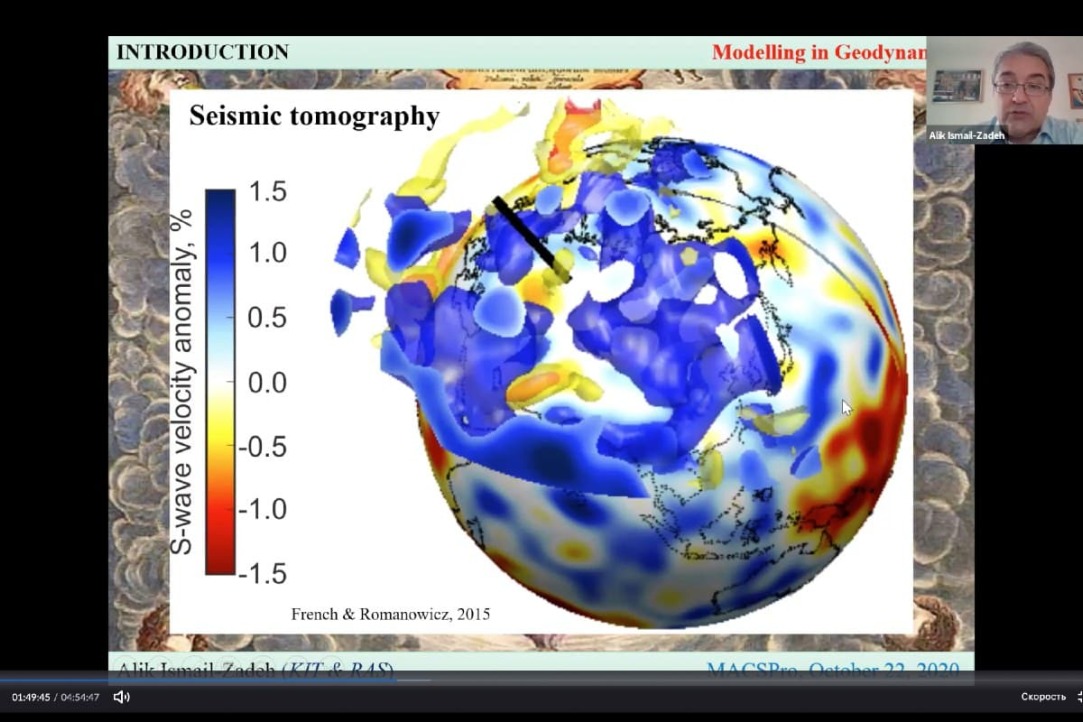MACSPro-2020 Online Conference

On October 22-24, MACSPro-2020 (Modeling and Analysis of Complex Systems and Processes) online conference has taken place. Its aim is the exchange of experience between the researchers working on theory and practice of complex system analysis in diverse areas ranging from astrophysics and bioinformatics to business. One of the conference’s organizers Sasha Shapoval talks about peculiarities of online conferencing and the most vivid moments of the event.
Sasha Shapoval
Laboratory Head
The first MACSPro conference took place on March 21-23, 2019 in Vienna, Austria. The second conference was to take place at the end of April 2020 in Venice, Italy. In early March, it has become obvious that the usual format cannot be used. We discussed the problem with our Italian colleagues and decided to move the conference to October. We were still hoping to set two offline sites in Venice and Moscow to supplement the virtual platform and enable more discussions. However, presently, such offline events are impossible. We made the final decision to host the conference online in summer.
During the last decade, computer science is actively developing in related disciplines. For example, physics, psychology, or economics use mathematical modelling, AI, and textual analysis more frequently. Collaborations emerge between the researchers from different areas to solve interdisciplinary problems. That said, there are almost no relevant international conferences that reflect the growing need for computer science ideas and methods in the interdisciplinary academic and applied projects. We are aiming to make MACSPro a suchlike conference.
In three days, twenty-three papers were presented at the conference. We were very lucky to have amazing speakers. Everyone, for instance, will remember the talk of Professor Stefano Boccaletti from the Institute for Complex Systems (Florence, Italy). He talked about an exceptionally beautiful mathematical component of the synchronization effect. Professor Wojciech Charemza from the University of Leicester, UK has shown us that it is necessary to know the details of text processing to access economic macro indices. Professor Alik Ismail-Zadeh of the Karlsruhe University and Russian Academy of Sciences gave a very vivid lecture on geodynamics with sample prognoses. Participants came from the four corners of the earth, from Europe, Asia, Africa, America, and Australia. Russia was represented by Keldysh Institute of Applied Mathematics, Novosibirsk State University, Lebedev Physical Institute, Moscow Institute of Physics and Technology, and, of course, HSE University.
During the conference, seemingly unrelated questions were discussed. How to simplify business processes? Why the knowledge of theoretical physics helps to apply game theory to complex system analysis? What details of text processing are vital for correct construction of uncertainty index? Nevertheless, the presentations were united by a single vector and resonated, almost creating one united product.
I consider it a considerable achievement that, despite the online format of the conference, we were able to create an atmosphere for discussions and informal talks. The participants were ready to discuss the presentations in their cosy homes. I am happy to share my positive experience of organising a conference: the main thing is to choose a high-demand topic and carefully select the key speakers. The rest will come if you manage things well.
Sasha Shapoval
